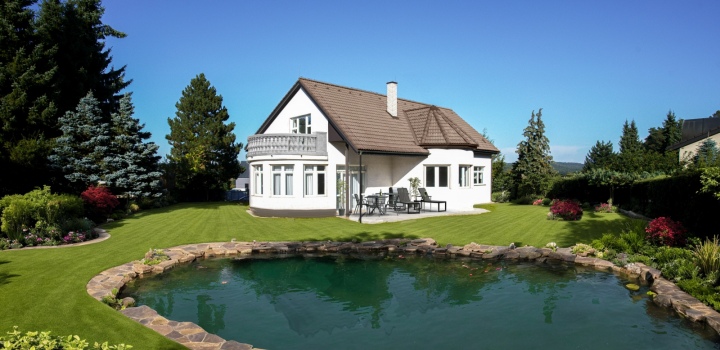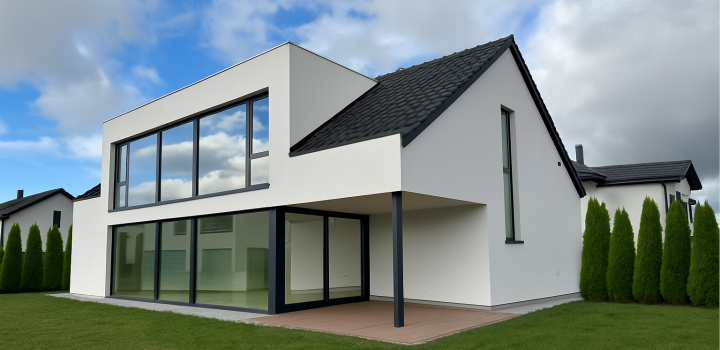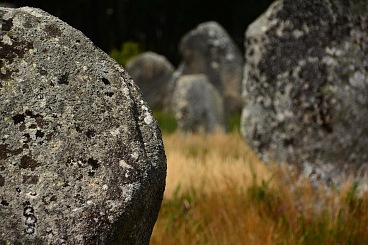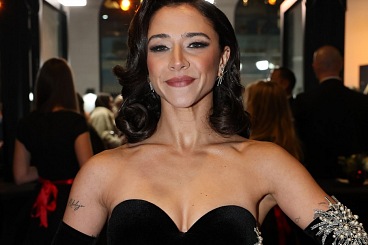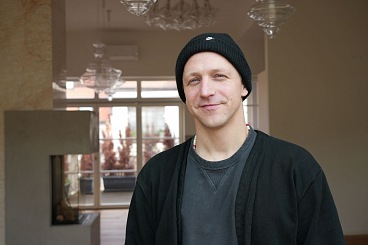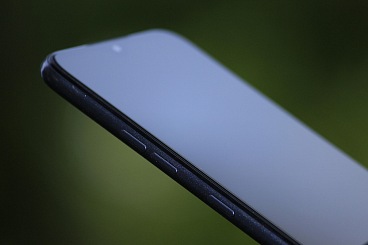Fast Confession - Gynecologist and obstetrician Patrice Awonseba Baba Musah: Czech patients are pleasantly surprised to have an African doctor at delivery
Patrice Awonseba Baba Musah, now a 35-year-old doctor from Ghana, Africa, has been living in the Czech Republic for fifteen years. A dark-skinned man would probably not be such a rarity in Europe, but Czech mothers allegedly tend to be surprised. No one expects an African to be delivering babies in Prague. And it is so. For three years now, Patrice has been taking care of the health of babies and mothers at the Institute for Mother and Child Care in Podolí, Prague. In an interview for LP-Life.com, he talked not only about the difficult beginnings in a foreign country, but also about why he showed up at a gathering in Chateau Šanov with eleven other health professionals.
We are now in the Šanov hotel after all of Moravia fell apart after a tornado and there is no power. Are you afraid?
I'm used to it, it's a daily thing in Ghana. There is a power outage every day. So I'm fine and I'm definitely not afraid. But of course what happened in South Moravia is scary and I wish everyone a lot of strength and health.
Where were you born in Ghana?
I was born in the small town of Bolgatanga, in the north of Ghana. It has about sixty thousand inhabitants, in our country it is a small town.
What family were you born into?
Dad was an office clerk, Mom is a cook. I'm the first doctor in the family.
How difficult is it for parents to get their child into Europe?
I think it's impossible for them, but I got a scholarship. It was easier, my parents didn't have to pay anything, I got the whole study for free.
Did you study over there?
I studied medicine here.
So where did you get a scholarship from?
My marks from high school, in Ghana.
What kind of school was it, what field?
We don't have specific ones like here. I did general science. I had physics, chemistry and agriculture. Then English, mathematics and social sciences.
Is it free?
Yes, it's free. These high schools are also free there, like here.
So you had good academic results, thanks to which you got a scholarship. Was it a given that you would go directly to the Czech Republic?
No, I first applied to Russia, but I made a mistake in my applications and didn't get in. Someone recommended the Czech Republic to me, saying that it is better there than in Russia. I am grateful for that today.
Had you ever heard of the Czech Republic? Did you know where it was?
Not at all. I searched for it for about a week, I couldn't find it. Then it occurred to me that it was Czechoslovakia, because everyone in Ghana thinks that it is Czechoslovakia. I already knew then that you had split a long time ago.
How old were you when you came here?
Nineteen years old.
How was it? I guess you hadn't left Ghana at all until then.
The first year was very hard for me, almost impossible. I always used to get food at home, I didn't have to do anything. My mother would buy me everything, I didn't know what my underwear size was. I had to cook for myself in college, it was also difficult, because I didn't always like it. But I was hungry and I had to eat everything. But over time, I got over it, I learned everything - to wash, clean, shop, cook and I already know what size T-shirt I have. (laughs)
I meant it more emotionally speaking. As a nineteen-year-old boy, you went to a foreign country by yourself that you had never heard of before. How did you deal with it?
For us, it is prestigious to study in Europe. I was happy about it, I knew that I would return to my family one day. It was mentally demanding, because my parents were far away, when I wanted to talk about something, I had no one to talk to. But over time, I've met people here and it's good. I have some friends here.
Why didn't you return home?
I'll go back one day, but at the moment I don't think I know all that much yet. When I am a full-fledged doctor and feel that I can do everything, I will return so that I can also teach young doctors in Ghana how to do medicine.
You're 35, how come you don't know much yet? What are you waiting for?
We have five years of training, then we do attestations. After them, you don't know that much yet, you gain experience over the years. I've only been in practice for seven years, that's not much in medicine when it comes to learning a lot. I have a goal.
How hard was it for you to learn Czech?
I didn't know a single word, but we had an intensive course in Mariánské Lázně for a year. Our homeroom teacher, we called her professor, was patient. The only unfortunate thing was that she did not speak English. She only spoke Czech to us and I didn't understand her. After school, I bought a dictionary and tried to remember what she told us. Also the pronunciation, "ř", was really very difficult for us. I still can't say it.
Don't worry about that, a lot of Czechs can't do it either. It's best to find a Czech girl for that.
For what?
To learn the language. Didn't you find a Czech girl to learn Czech?
I don't think I had that much time to date anyone (laughs). But I had good friends, they helped me a lot. I also played, or still play, football, and the boys from football spoke Czech to me, so I got into it faster.
You said that during the internship you saw the birth of a child and decided to become an obstetrician. What did your parents say when they learned that you chose this, and not something like surgery?
Mom couldn't believe I wanted to be a gynaecologist. I was very shy back in Ghana. I couldn't talk to girls, I always kept my head down. Dad just said that if I chose this field, he hopes that I will last a long time, because it probably won't be a very nice field. Fortunately, it is nice, we make women happy, and I like that.
But you are not the only one in the family who's in the medical field.
No, I have three sisters. The oldest one is a nurse in Ghana, or a birth attendant, or a midwife, as we say. I'm second. The second sister also works as a midwife, and the youngest sister studied communication and finance.
Are all three of them in Ghana?
All three are in Ghana, the youngest will come here to study in Brno in September.
You have to look forward to that.
I'm looking forward to it, at least I won't be alone here. She'll cook something good for me, something African. (laughs)
You keep saying you'll go back to Ghana once you've learned more. But what if you fall in love here?
That is possible. If that happens, I can't leave her or the kids here and go to Africa.
Are you ready to spend your whole life here in the Czech Republic?
I'm open to it.
Hypothetically, if you found a wife, whether here or in Ghana, would you deliver your own child?
Absolutely not. I wouldn't even recommend this to anyone. If something happened, I'd carry it with me my whole life, and that's bad.
How did you get to Podolí?
I had a friend from Ghana who started working in Podolí. He called me saying that there's a good, amazing team there and good world-class medicine is practised there. He said I'm wasted on a district hospital and to go to Prague immediately to work at the clinic in Podolí.
So you didn't live in Prague before, but in Mariánské Lázně?
I lived in Mariánské Lázně for a year, then I studied medicine in Prague for six to seven years. I worked for a year in Stoda near Plzeň, then for three years in Rakovník and a year in Tábor.
You've been through many places.
It is sometimes better to change one's workplace so that one can see how medicine is done in other workplaces, even in the district. Medicine is universal, but the procedures are different in each hospital.
Was there a place where you really didn't like it, where the procedures weren't right for you?
It was more about the fact that the procedure was not satisfactory. When you're a young doctor, it's better for someone to take you under their wing. I had a very difficult start, because I had no one to devote their time to me. But I was lucky, in Rakovník I was taken in by Dr Hajči and Dr Růžička who showed me how to do it right. Since then, I have had the confidence to continue in medicine.
How long have you been in Podolí?
Almost three years.
Do you like it there?
It's really nice, for real. Great team. Associate Professor Měchurová, whom I am very grateful to, accepted me as her own son. She tested me every week until the attestations, she gave up her free time to help me prepare, I am really very grateful for her help. Plus, it's a good clinic, they do fetal medicine there. (editor's note: Fetal medicine deals with the diagnosis of congenital malformations and treatment of the fetus. Ultrasound diagnostics inform about the development of the fetus, it can warn in time of impending premature birth, congenital malformation of the fetus or possible obstetric complications. Close cooperation between obstetricians, neonatologists, geneticists and specialized laboratories in the case of a fetal disease is necessary)
Do you like that?
I like it. But I don't do obstetrics, I'm mostly in gynaecology and ultrasound. It's a workplace with a good name and it's a good experience for me.
How do patients react to you?
They are always surprised that someone from Africa comes and delivers here. But then they ask for us at their delivery and say that they were lucky that they could have such a doctor and that they have a unique experience for the rest of their lives.
So it's working out for you with Czech women?
Exactly.
Are you happy about that?
It makes me happy. I used to be afraid, I remember that when I said I wanted to do gynaecology, my friends told me it was a sensitive field and I could have a problem with patients. That they won't want to come to me because I'm different. I said it didn't matter, all that matters is if I can do it or not.
And do you know now that you can do it?
I can't evaluate it myself, patients and colleagues can judge that.
Since you were nominated for Angel Among Health Professionals, I assume everyone is happy with you.
I assume so, they are satisfied.
What effects did covid restrictions have on the mothers' mental state? How did it impact the field of obstetrics? Dads couldn't be present at childbirth...
It was a big affair that dads couldn't be present at childbirth. Another thing was that if it was not necessary, the mothers did not have to go to usual check-ups regularly. We tried to limit hospital visits if possible. If a woman were to have check-ups once a week, we pushed it to once every other week. They were unhappy that it could cost them their baby's life if they weren't monitored so often. We usually do a CTG monitoring once a week, after the extension they were afraid that it was not enough. If they had covid when they had a problem, they couldn't go to the hospital right away. They first had to call and inform us that they were positive to prepare for the visit. It's complicated, getting dressed, disinfecting everything. Even the approach to them was a bit stressful, they see us in suits, with masks, they were afraid that something bad was happening.
Have you returned to normal now?
Yes, almost.
Did you feel that the mental state of the mothers was different from that before covid? Were they more scared?
I didn't notice it. Mostly when I talked to dads who didn't want to be at the birth, but the women forced them to be there. I don't think their absence plays an important role. I did not notice that it would have a negative effect on their mental state.
In Fast Confession, you said that vaccinating pregnant women is a complicated issue.
There is no clear answer to this. We always have to consider if the pregnant woman is at any risk, and if so, it is better to vaccinate. For example, if she is obese or has high blood pressure, this increases the risk of a severe course of the disease. Otherwise, I would recommend they not be vaccinated during pregnancy, if there are no risks, I would wait until after the postpartum period.
One last thing I'm interested in is circumcision. Are women still being circumcised in Ghana?
Not women, not anymore, it's forbidden. It used to be done, now it's illegal.
Have you ever seen female circumcision?
No, just on TV. I must say that they are surprisingly doing the same in France, where African tribes travelled. They do it there in secret. I just read that, whether it's true, I don't know.
But it's not right.
It's not right, you ruin a woman's entire life.
Thank you very much for the interview, Doctor.
Fast confession:
What is better in Ghana than in the Czech Republic?
What did you learn here in the Czech Republic besides medicine?
Why did you decide to become an obstetrician?
How many children have you already delivered?
What do you like about Czech girls?
Vaccination of pregnant women against covid - yes or no?
The hardest Czech word?
What did your parents say when you became a doctor?
How do you feel about European winter?
Which Czech beer is the best?
What can you do better than Czech people?
Where do you see yourself in 10 years?
Which Czech food can you already cook?
Are Czechs racist?
Say nejkulaťoulinkatější.
Awesooome.









